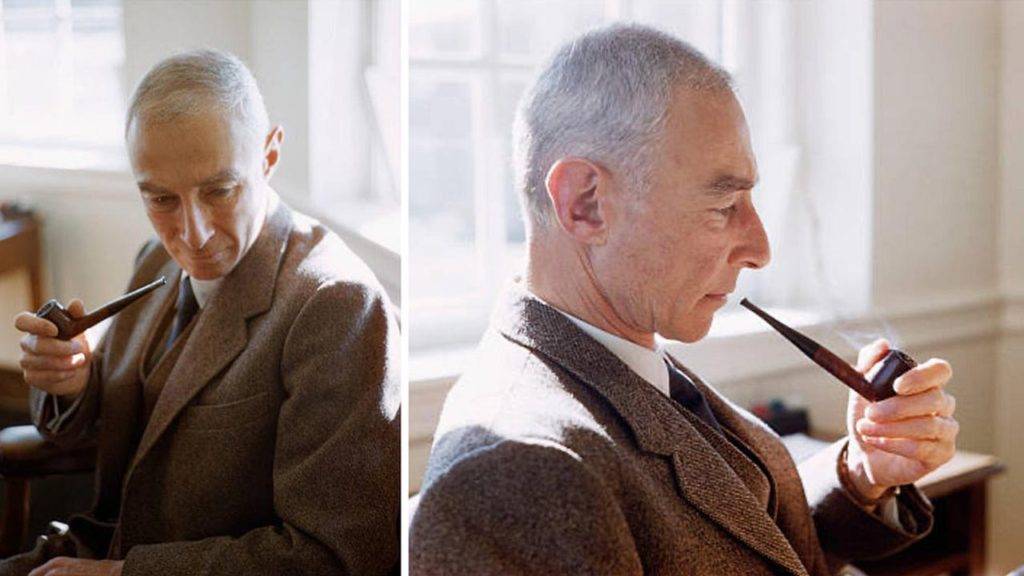Oppenheimer Cause of Death : J. Robert Oppenheimer was one of the most renowned physicists of the 20th century, known for his contributions to the development of the atomic bomb during the Manhattan Project.
Despite the controversies surrounding his life, Oppenheimer’s legacy continues to be felt today, both in the scientific community and in popular culture. In this article, we’ll explore the cause of death of J. Robert Oppenheimer and shed some light on his contributions to science and his impact on history.

Table :
| Full Name | J. Robert Oppenheimer |
|---|---|
| Date of Birth | April 22, 1904 |
| Nationality | American |
| Died | February 18, 1967 |
Oppenheimer Cause of Death:
J. Robert Oppenheimer was a renowned physicist who is widely known for his contributions to the development of the atomic bomb, particularly for his role as the scientific director of the Manhattan Project. However, despite his numerous achievements, Oppenheimer’s life was marred by controversy, particularly during the McCarthy era when he was accused of being a communist sympathizer. However, one aspect of his life that is less controversial but no less tragic is his cause of death. In this article, we’ll explore the cause of death of J. Robert Oppenheimer and shed some light on his legacy.
Oppenheimer passed away on February 18, 1967, at the age of 62. According to the Institute for Advanced Study, where he worked as a faculty member until his death, Oppenheimer died of throat cancer. The diagnosis reportedly came in 1965, and he underwent multiple surgeries and radiation treatments in an attempt to combat the disease. However, despite his best efforts and those of his medical team, the cancer ultimately proved fatal.
Aside from his contributions to the Manhattan Project, Oppenheimer was also known for his work in theoretical physics. He was particularly interested in quantum mechanics and is credited with formulating the theory of the neutron-proton interaction. Additionally, he made significant contributions to the field of astrophysics, specifically in the study of supernovae and black holes.
What Was The Cause Of Death Of J. Robert?
Oppenheimer’s legacy continues to be felt today, both in the scientific community and in popular culture. His work on the atomic bomb had far-reaching consequences, and his experiences during the McCarthy era have become a cautionary tale about the dangers of political persecution. He is often portrayed in literature and film, including in the recent Christopher Nolan movie, “Oppenheimer,” which explores his role in the Manhattan Project.
In recent years, there has been renewed interest in Oppenheimer’s life, particularly in light of new revelations that he may have been falsely accused of being a Soviet spy. In 2022, the US Department of Energy released previously classified documents that cleared Oppenheimer of the accusations, which had dogged him for decades.
Despite the controversies surrounding his life, Oppenheimer remains a celebrated figure in the scientific community. His contributions to physics and the development of the atomic bomb continue to inspire scientists and researchers today. Additionally, his legacy serves as a reminder of the complex moral and ethical issues that arise when science is used to develop weapons of mass destruction.
Frequently Asked Questions (FAQ’s) :
Q: Was Oppenheimer a communist sympathizer?
A: Oppenheimer was accused of being a communist sympathizer during the McCarthy era, but there is no evidence to support the accusations.
Q: What was Oppenheimer’s role in the Manhattan Project?
A: Oppenheimer served as the scientific director of the Manhattan Project, which was responsible for developing the atomic bomb.
Q: What is Oppenheimer’s most famous quote?
A: Oppenheimer is famously quoted as saying, “Now I am become Death, the destroyer of worlds,” after witnessing the first successful test of the atomic bomb.
Q: What other contributions did Oppenheimer make to the field of physics?
A: Oppenheimer made significant contributions to the field of theoretical physics, particularly in the areas of quantum mechanics and astrophysics.
Q: What is Oppenheimer’s legacy?
A: Oppenheimer’s legacy is a complex one, encompassing his contributions to the development of the atomic bomb, his role in the McCarthy era, and his groundbreaking work in theoretical physics.






